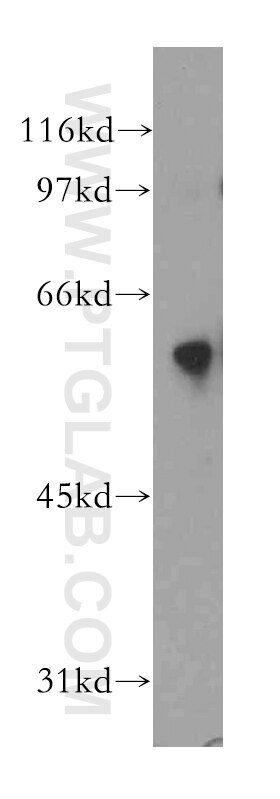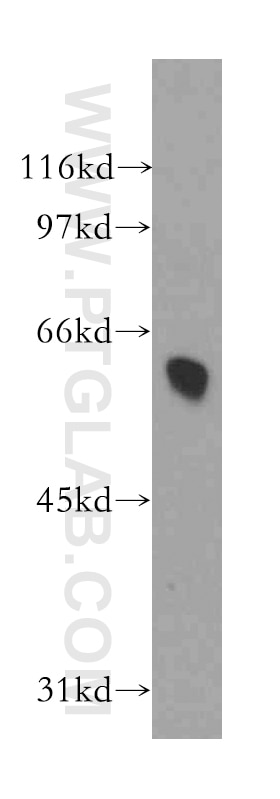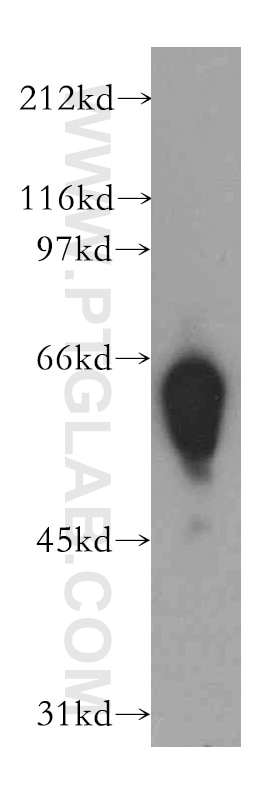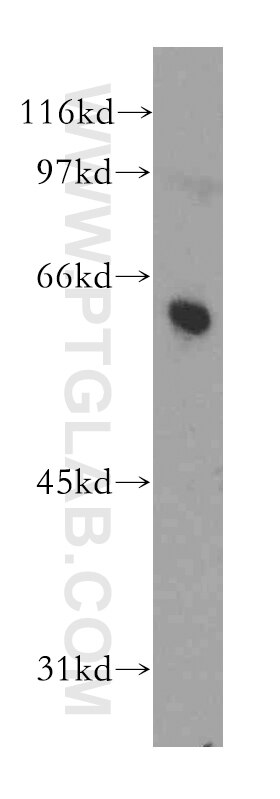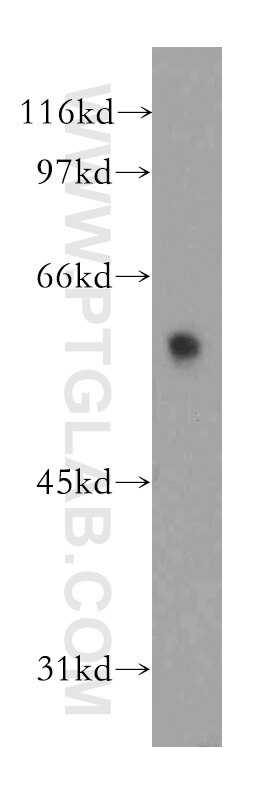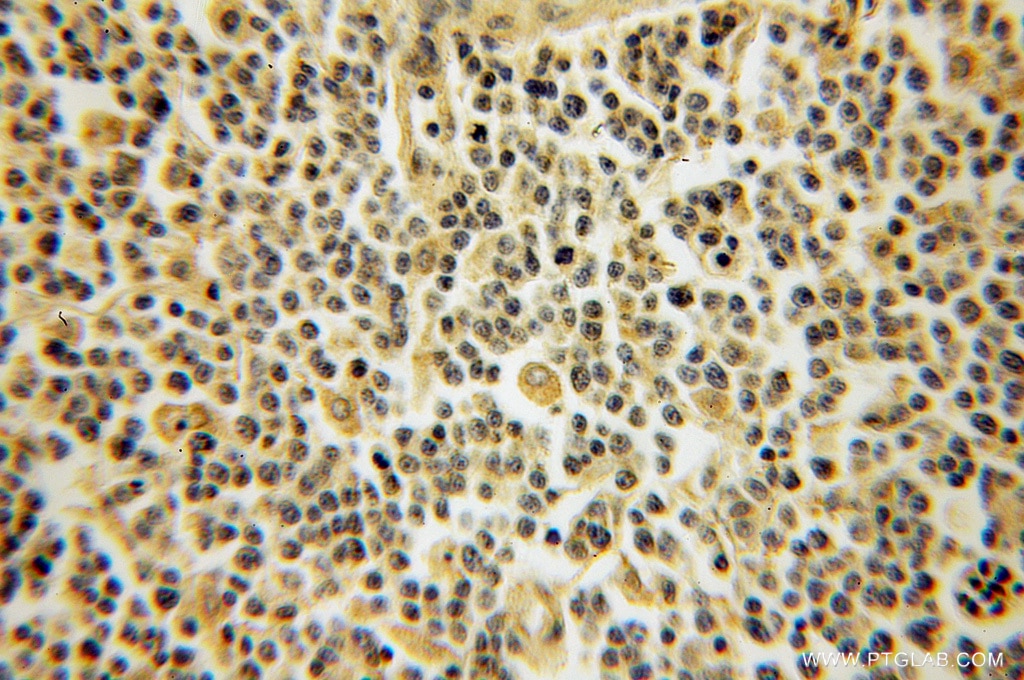Validation Data Gallery
Tested Applications
| Positive WB detected in | mouse lung tissue, human brain tissue, Jurkat cells, mouse testis tissue, U-937 cells |
| Positive IHC detected in | human lymphoma tissue Note: suggested antigen retrieval with TE buffer pH 9.0; (*) Alternatively, antigen retrieval may be performed with citrate buffer pH 6.0 |
Recommended dilution
| Application | Dilution |
|---|---|
| Western Blot (WB) | WB : 1:500-1:2400 |
| Immunohistochemistry (IHC) | IHC : 1:20-1:200 |
| It is recommended that this reagent should be titrated in each testing system to obtain optimal results. | |
| Sample-dependent, Check data in validation data gallery. | |
Product Information
12890-2-AP targets DYRK4 in WB, IHC, ELISA applications and shows reactivity with human, mouse, rat samples.
| Tested Reactivity | human, mouse, rat |
| Host / Isotype | Rabbit / IgG |
| Class | Polyclonal |
| Type | Antibody |
| Immunogen |
CatNo: Ag3515 Product name: Recombinant human DYRK4 protein Source: e coli.-derived, PGEX-4T Tag: GST Domain: 104-400 aa of BC031244 Sequence: YEVLETIGKGSFGQVAKCLDHKNNELVALKIIRNKKRFHQQALMELKILEALRKKDKDNTYNVVHMKDFFYFRNHFCITFELLGINLYELMKNNNFQGFSLSIVRRFTLSVLKCLQMLSVEKIIHCDLKPENIVLYQKGQASVKVIDFGSSCYEHQKVYTYIQSRFYRSPEVILGHPYDVAIDMWSLGCITAELYTGYPLFPGENEVEQLACIMEVLGLPPAGFIQTASRRQTFFDSKGFPKNITNNRGKKRYPDSKDLTMVLKTYDTSFLDFLRRCLVWEPSLRMTPDQALKHAWI 相同性解析による交差性が予測される生物種 |
| Full Name | dual-specificity tyrosine-(Y)-phosphorylation regulated kinase 4 |
| Calculated molecular weight | 520 aa, 60 kDa |
| Observed molecular weight | 60 kDa |
| GenBank accession number | BC031244 |
| Gene Symbol | DYRK4 |
| Gene ID (NCBI) | 8798 |
| RRID | AB_2094086 |
| Conjugate | Unconjugated |
| Form | |
| Form | Liquid |
| Purification Method | Antigen affinity purification |
| UNIPROT ID | Q9NR20 |
| Storage Buffer | PBS with 0.02% sodium azide and 50% glycerol{{ptg:BufferTemp}}7.3 |
| Storage Conditions | Store at -20°C. Stable for one year after shipment. Aliquoting is unnecessary for -20oC storage. |
Background Information
Dual-specificity tyrosine phosphorylation regulated kinase 4(DYRK4), belongs to a conserved family of serine/threonine protein kinases. DYRK4 is thought to function in the regulation of cell differentiation and proliferation, survival, and in development. DYRK4 has 5 isoforms with molecular weight of 59, 72 and 73 kDa.
Protocols
| Product Specific Protocols | |
|---|---|
| IHC protocol for DYRK4 antibody 12890-2-AP | Download protocol |
| WB protocol for DYRK4 antibody 12890-2-AP | Download protocol |
| Standard Protocols | |
|---|---|
| Click here to view our Standard Protocols |

